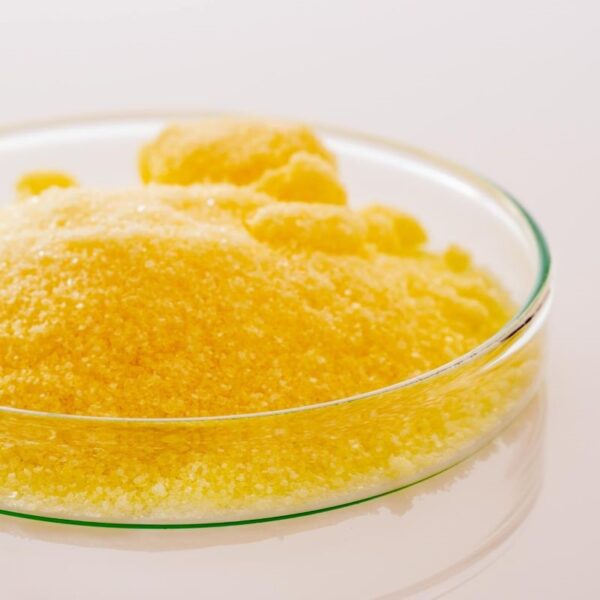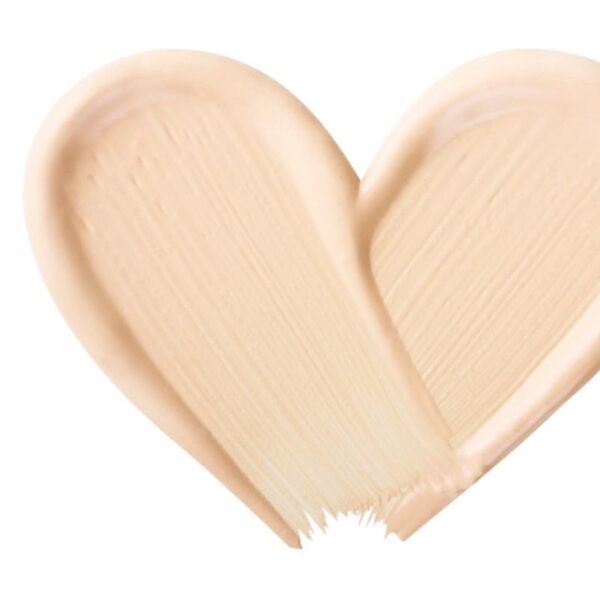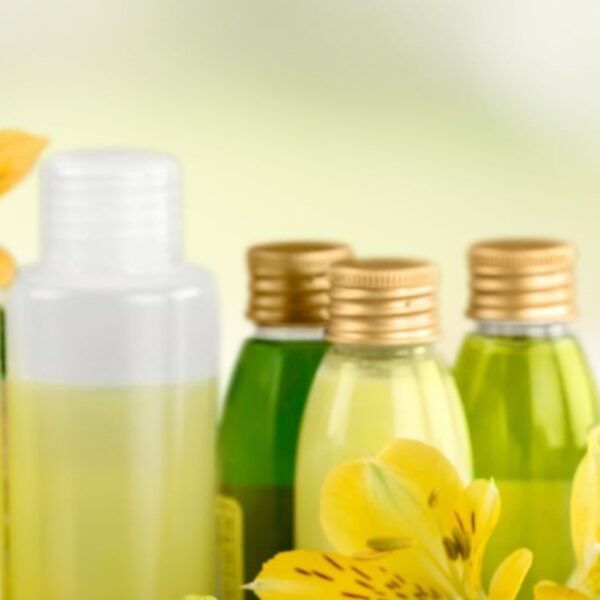The hair care industry is no stranger to sustainability trends. For years, increasing consumer desire for eco-friendly, ethical hair products has driven brands to seek sustainable ingredients that meet customer expectations and deliver benefits without taking a toll on the environment. Traditionally, hair care brands have turned to silicone-based conditioning agents or animal-based emollients such as beeswax, lanolin and other fats in their shampoo and conditioner products to aid hair and scalp health. But rising health and environmental impact concerns of silicone and animal byproducts have hair care product developers reconsidering these ingredients.
Sunflower lecithin is a naturally-derived ingredient that’s becoming a more common choice for hair care formulators and product developers. If you’re seeking alternative ingredients for hair care products that deliver similar benefits without the potentially negative impacts of silicone or animal by products, sunflower lecithin may be a viable option.
What is Sunflower Lecithin?
Lecithins are naturally derived mixtures of distinct phospholipids (PLs) extracted from various origins (animal or vegetable) meals. They act as a natural emollient and are more compatible with other plant-based ingredients, making them a versatile option in cosmetics formulation.

Sunflower lecithin is a natural emulsifier that binds to other ingredients to form a smooth and creamy consistency. It can enhance texture and skin hydration and reduce inflammation — making it a common additive in cosmetic and sensitive skin care products.
How is Sunflower Lecithin Produced and Processed?
The production of sunflower lecithin requires specialized manufacturing techniques to crush its tiny seeds, which are smaller than soybeans. It’s typically cold-processed to help retain the beneficial nutrients and antioxidants of sunflower seeds. It can also be processed using solvent extraction procedures (more feasible than the other conventional methods), which makes this a very sustainable raw material.
Sunflower Lecithin Applications in Cosmetic and Personal Care Products
Sunflower lecithin is a natural raw material derived from sunflower oil that is rich in essential fatty acids and other nutrients that are beneficial for skin, scalp and hair health. Everyday products that use the ingredient for its emulsifying properties include creams, cleansers, moisturizing liquid make-up materials, beauty lotions and skin-penetration enhancers. The inclusion rate of lecithin in products is in the range of 0.5-1 %.
Benefits in Hair Care Products
The ingredient is becoming popular in hair care products because it is rich in essential fatty acids and other beneficial nutrients that improve scalp and hair health to prevent dandruff, scalp irritation, and other conditions. The mixture is also a great source of antioxidants, which helps protect hair from daily stress and damage. When used in shampoos and conditioners, it:
- Moisturizes the hair and scalp
- Reduces dryness and brittleness
- Protects from environmental deterioration
Emulsifier
Sunflower lecithin is used in many commercial products thanks to its emulsifying properties and viscosity-reducing effect. It functions as an emulsifier by helping to bind ingredients together and form a smooth and creamy consistency. It helps keep products from separating and increases shelf life. Sunflower lecithin also improves product absorbability and enhances its texture. O/W emulsions determine the emulsifying properties of modified sunflower lecithin.
Moisturizer
Sunflower Lecithin’s primary nutrients — choline and inositol — promote hair health. Both nutrients are part of the B complex vitamins needed for healthy hair growth, repair, and maintenance. Sunflower lecithin also contains many phospholipids — including phosphatidylcholine, phosphatidylethanolamine, and phosphatidylinositol — that support hair regeneration. When applied to the hair, lecithin’s fatty and oily nature help moisturize and refortify the cell membranes around dry, damaged, or brittle hair – and it can even help reverse the effects of aging.
Sunflower lecithin’s moisturizing and hair-protective qualities are effective for individuals with wavy, curly, or oily hair because these types of hair are more prone to dryness and breakage. When added to hair care products, it can also reduce frizz and flyaways, improve shine, and protect the hair from damage caused by heat styling — without leaving hair greasy or sticky.
Silicone vs. Sunflower Lecithin: Which is a More Sustainable Conditioning Additive?
Traditionally, silicones are the most common conditioning agents found in hair care products. They are beloved for their ability to leave a glossy, smooth finish on hair while making it more manageable. Despite the known advantages of formulating silicones, there are possible drawbacks, long-term health concerns, and environmental impacts, causing formulators to reconsider the ingredient class.
Below you can see the most common silicone detractors when used in hair care products, and discover how sunflower lecithin compares when used in similar applications.
Sunflower Lecithin vs. Silicones in Hair Care Products
| Conditioning Benefits | Hair Build-Up | Allergic Sensitivity | Scalp Health | Environmental Impact | |
| Silicones | Do not penetrate the hair shaft, meaning they are only surface-level conditioning agents and do not nourish the hair. | Known to create build-up on hair, which can cause it to become brittle and unmanageable over time. | Similar to animal-derived fats and waxes such as lanolin, another common emollient in hair care products, some people may have allergic reactions or sensitivity to silicone-based products, leading to scalp irritation and inflammation. | Silicones are non-porous and, when used in hair products, can form a barrier on the scalp that may prevent essential oils from being absorbed into the skin. This barrier may cause dryness and other scalp issues over time. | Not biodegradable, meaning that when silicones are washed off — or washed out of — products, they remain in the environment. Some silicone-based products may also contain other chemicals or pollutants that can be hazardous and negatively impact the environment. Additionally, silicone production requires petroleum products, which are not renewable resources. |
| Sunflower Lecithin | As sunflower lecithin penetrates the hair shaft, it nourishes and conditions hair. Sunflower lecithin also serves as a natural detangler and leave-in conditioner. | Sunflower lecithin does not create hair build-up, or leave it feeling greasy after use. | While it’s possible for allergic reactions to occur, it’s not as common because sunflower lecithin is a natural ingredient and doesn’t possess petroleum or animal-based products. | Moisturizes the hair and scalp, reduces dryness and brittleness, and protects from environmental deterioration. | Sunflower lecithin is derived from sunflower oil, making it a renewable raw material that doesn’t carry the heavy environmental impact of silicone-based alternatives. |
Sunflower Lecithin Formulation Considerations
When used in shampoos and conditioners, the typical usage level of sunflower lecithin is between 0.5-2%. However, the exact usage level will depend on the other ingredients used in the formulation and the desired effect. Preservatives compatible and suitable for sunflower lecithin in hair care products include benzyl alcohol, phenoxyethanol, and sodium benzoate, with a typical usage level of around 0.25-2%. Choosing a preservative appropriate for the product you are formulating is essential.
Here is an example of a shampoo formulation table with sunflower lecithin along with the % weight of ingredients:
| Ingredients | % Wt. |
| Water | 70 |
| Sodium Lauryl Sulfate | 5 |
| Cocamidopropyl Betaine | 5 |
| Sunflower Lecithin | 2 |
| Polyquaternium-7/10 | 5 |
| Glycerin | 4 |
| Panthenol | 4 |
| Fragrance/Aloe Vera Juice Extract | 2 |
Another example of a hair conditioner formulation table with sunflower lecithin along with the % weight of ingredients:
| Ingredients | % Wt. |
| Water | 80 |
| Cetearyl Alcohol | 5 |
| Sunflower Lecithin | 2 |
| Glycerin | 3 |
| Behentrimonium Chloride | 1 |
| Panthenol | 1 |
| Fragrance/Aloe Vera Juice Extract | 8 |
Sunflower Lecithin Safety & Regulatory Concerns
The FDA approves sunflower lecithin for use in food and cosmetic products. EU Cosmetic Regulation also lists it as an allowed ingredient. No evidence suggests sunflower lecithin causes irritation when used in personal care products. The CIR (Cosmetic Ingredient Review) has found cosmetics that include sunflower lecithin safe when used as directed.
Sunflower Lecithin: A Sustainable Ingredient That Provides Hair and Scalp Benefits
Sunflower lecithin is a natural, renewable hair care additive that can provide comparable hair and scalp benefits to silicones and animal-based fats in cosmetic applications. As industry sustainability trends and consumer purchasing habits continue to gain steam, it should be considered a viable alternative. Formulators and product developers can use sustainable ingredients like sunflower lecithin and other plant-based solutions to achieve the same goals without sacrificing product quality or performance.




